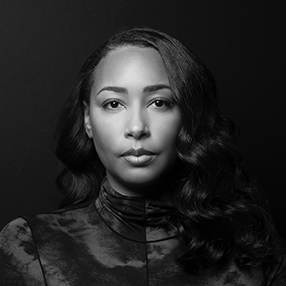Hands
Out here the surf rewrites our silences.
This smell of ocean may never leave me;
our humble life or the sea a dark page
I am trying to turn: Today my mother’s words
sound final. And perhaps this is her first true thing.
Her hands have not been her hands
since she was twelve,
motherless and shucking whatever the sea
could offer, each day orphaned in the tide
of her own necessity—where the men-o-war
ballooned, wearing her face, her anchor of a heart
reaching, mooring for any blasted thing:
sea-roach and black-haired kelp, jeweled perch
or a drop of pearl made with her smallest self,
her night-prayers a hushed word of thanks.
But out here the salt-depths refuse tragedy.
This hand-me-down life burns sufficiently tragic—
here what was cannibal masters the colonial
curse, carved our own language of the macabre,
sucking on the thumb of our own disparity. Holding
her spliff in the wind, she probes and squalls,
trying to remember the face of her own mother,
our island or some strange word she once found
amongst the filth of sailors whose beds she made,
whose shoes she shined, whose guns
she cleaned, while the white bullet of America
ricocheted in her brain. Still that face she can’t recall
made her chew her fingernails, scratch the day down
to its blood, the rusty sunset of this wonder,
this smashed archipelago. Our wild sea-grape kingdom
overrun, gold and belonging in all its glory
to no one. How being twelve-fingered she took her father’s
fishing line to the deviation, and starved
of blood what grew savage and unwanted. Pulled
until they shriveled away, two hungry mouths
askance and blooming, reminding her
that she was still woman always multiplying
as life’s little nubs and dreams came bucking up
in her disjointed. How on the god-teeth
she cut this life, offered her hands and vessel
to be made wide, made purposeful,
her body opalescent with all our clamoring,
our bloodline of what once lived
and will live and live again.
In the sea’s one voice she hears her answer.
Beneath her gravid belly
my gliding hull
a conger eel.
Copyright © 2015 by Safiya Sinclair. Originally published in Poem-a-Day on June 17, 2015, by the Academy of American Poets.
“Part of my interest as a Jamaican poet is tracing the history of our naming, the sea and the island’s memory, the history of the body, and exploring what is ‘savage and unwanted’ there. This poem first loomed when I was told that my poetry was ‘often macabre,’ and I thought—well, yes, that’s natural: the history of the Caribbean is macabre. From there, I wanted to find some way to distill the lingering trauma of these fractured origins into something singular and hopeful—menacingly hopeful—by using my mother’s experiences to voice these hardships and somehow attempt to transgress them.”
—Safiya Sinclair

